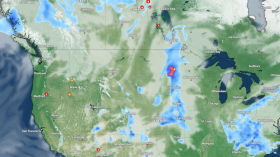Climate change will lead to low-quality food, a new study suggests.
The study was conducted by researchers at Harvard University and colleagues. According to the scientists, major food crops such as wheat, maize, rice and soybeans will have low levels of zinc and proteins in the future.
"We found that rising levels of CO2 are affecting human nutrition by reducing levels of very important nutrients in very important food crops," said Prof Samuel Myers from Harvard University, United States, and lead author of the study.
"From a health viewpoint, iron and zinc are hugely important. Close to one third of the world's population already suffers from iron and zinc deficiencies, and according to this new study the rising levels of CO2 would only make things worse," Myers said in a news release.
A recent study by researchers at University of California, Davis had found that wheat plants exposed to high levels of carbon dioxide tend to reduce their assimilation of nitrates into proteins.
In the present study, scientists compared nutrient levels in plants exposed to different concentrations of carbon dioxide levels. The study included 41 strains of plants grown at seven different locations across three continents.
Researchers found that wheat grown in high carbon dioxide levels had 9 percent less zinc, 5 percent less iron and 6 percent less protein than plants in ambient carbon dioxide levels. Similarly, rice, maize and soybean showed a drop in nutrient levels. Soybean, being a legume, didn't show a decrease in protein levels.
The team hasn't found a mechanism that could explain the reduction in nutrient levels in food plants.
But, couldn't people just eat more food to compensate for the lower nutrient levels? According to researchers, this isn't possible because food production by 2050 would have reached peak values to barely sustain human population.
A common assumption is that rise in carbon dioxide levels will increase food production. Myers said that crop yield will increase in the future, but rising global temperatures will bring other problems such as floods, heatwaves and drought. Related research has shown that climate change could lead to increase in disease in wheat plants.
The study is published in the journal Nature.
© 2024 NatureWorldNews.com All rights reserved. Do not reproduce without permission.





